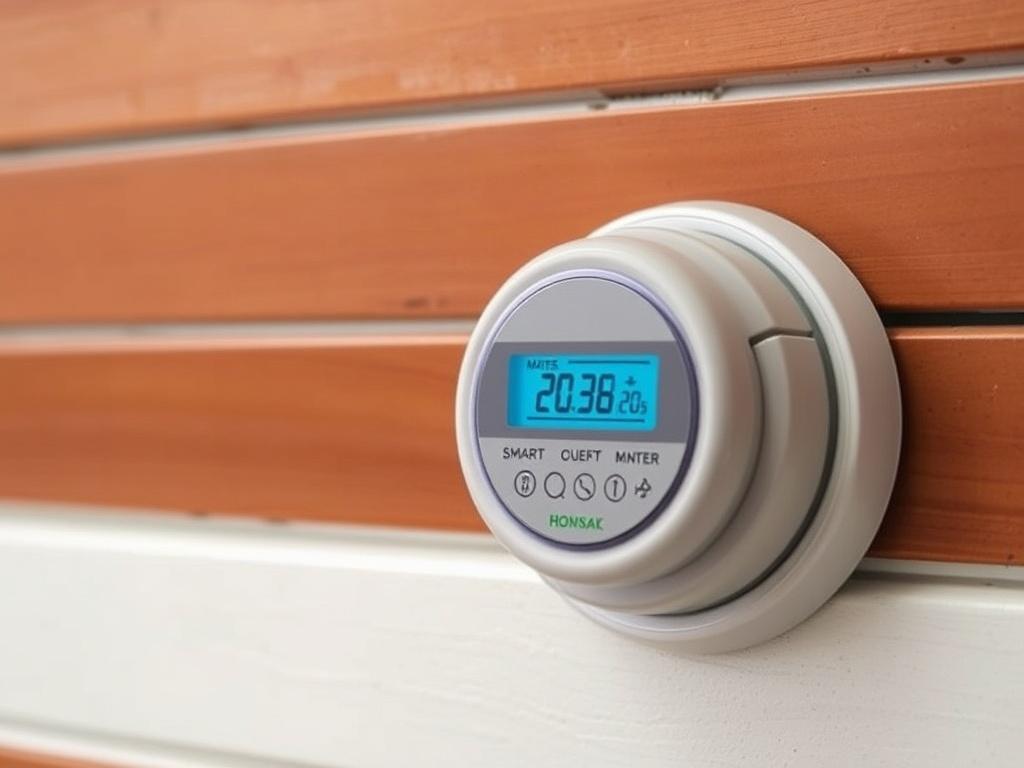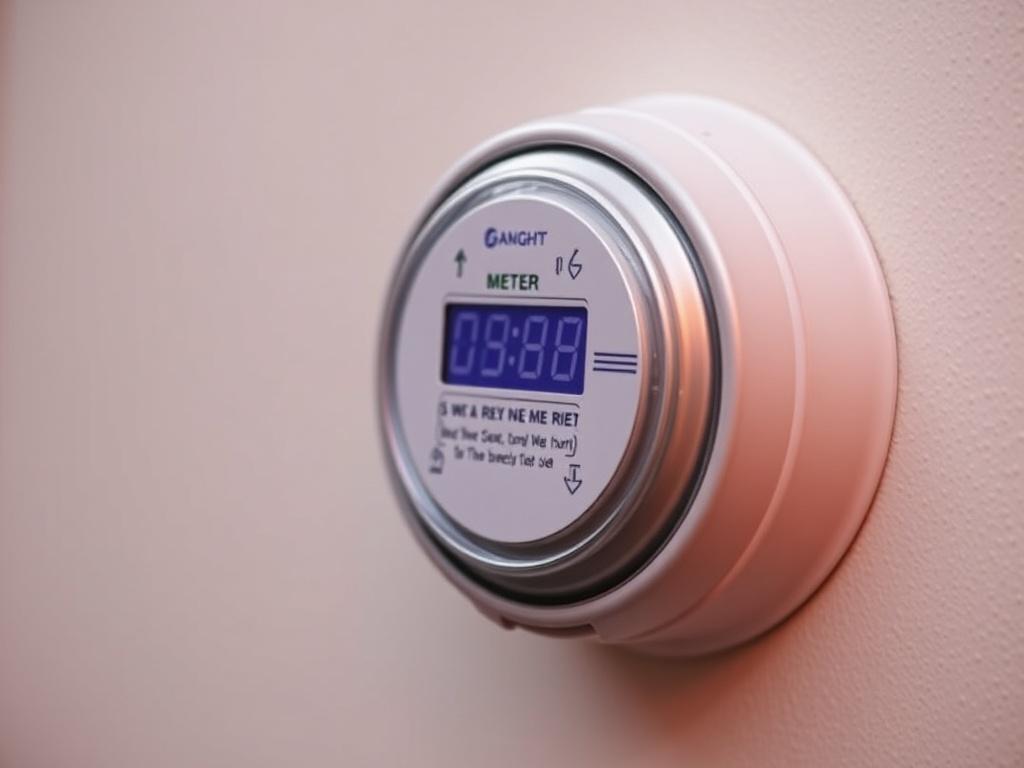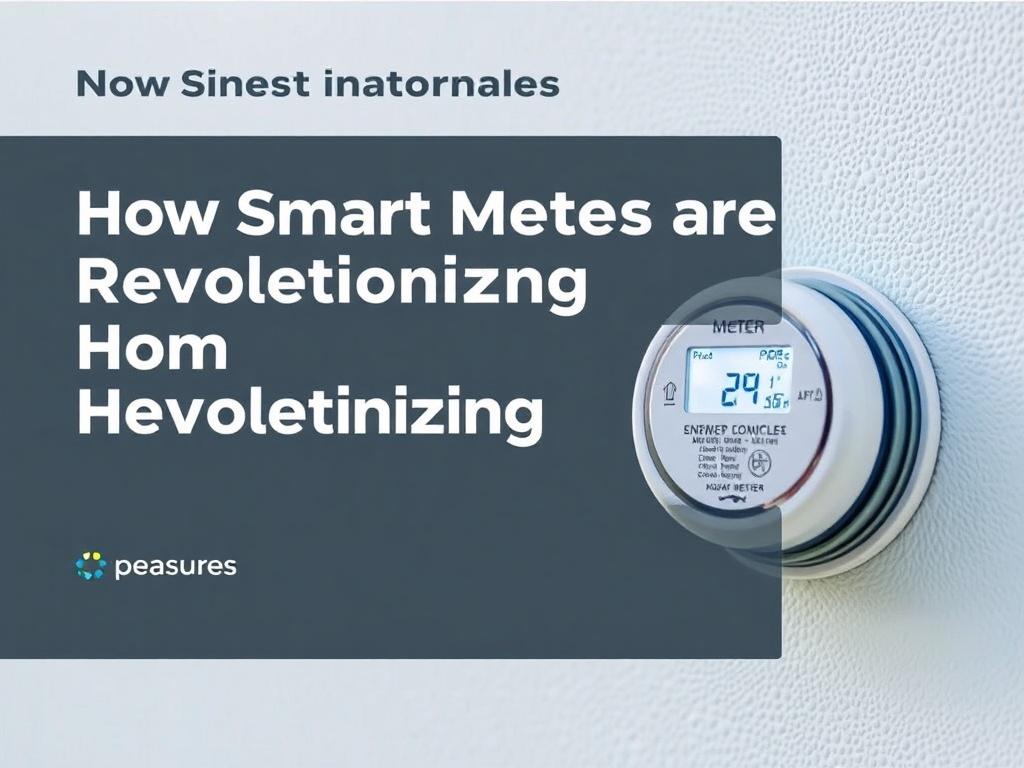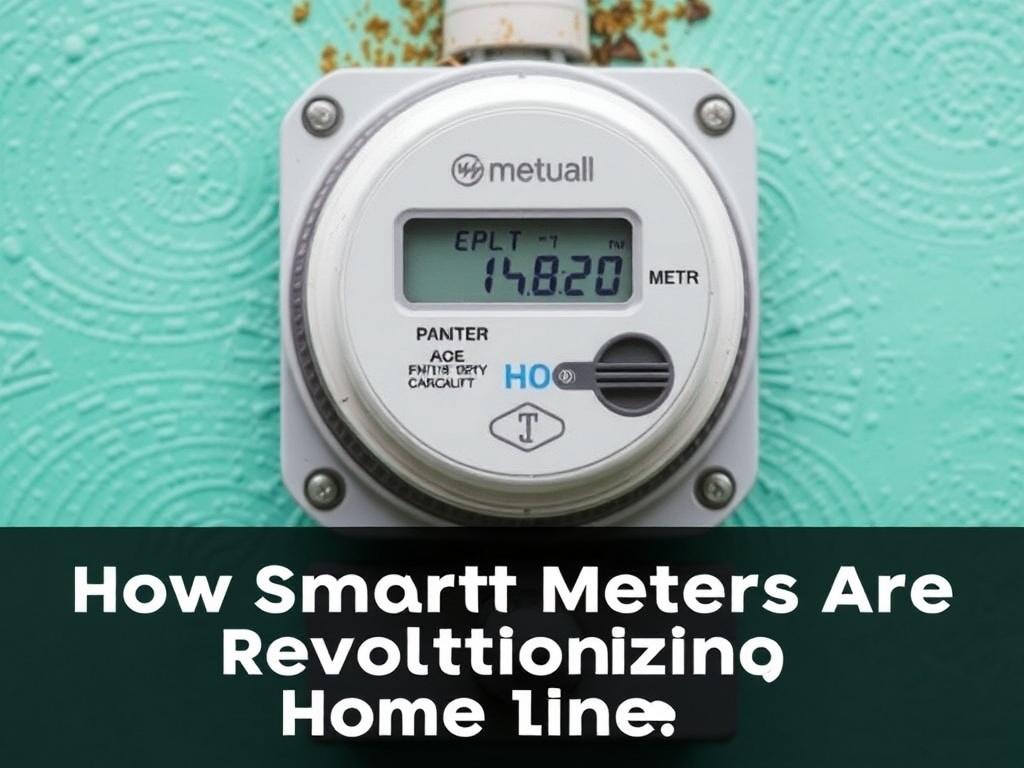- What Is a Smart Meter?
- The Technology Behind Smart Meters
- How Smart Meters Change the Way We Use Energy at Home
- Real-Time Energy Awareness
- More Accurate Billing and Cost Savings
- Benefits to the Environment and Energy Grid
- Reducing Energy Waste
- Supporting Renewable Energy Integration
- Enhancing Grid Reliability and Demand Response
- How to Make the Most of a Smart Meter in Your Home
- Common Questions About Smart Meters
- The Future of Smart Meters and Home Energy Use
- Potential Challenges and Considerations
- Summary: Key Features of Smart Meters
- Conclusion
In today’s rapidly evolving world, technology continues to transform the way we manage our homes, particularly when it comes to energy use. Among the most impactful innovations is the rise of smart meters. These devices are revolutionizing home energy use by offering real-time insights, improved billing accuracy, and greater control over electricity consumption. For homeowners eager to embrace sustainability and reduce their energy bills, smart meters represent a game-changing solution that goes beyond the traditional meter for measuring energy consumption.
Smart meters replace old-fashioned analog meters by using digital technology to provide detailed data about a household’s electricity use, usually updated every 15 minutes or even in real time. This frequent feedback helps people understand exactly when and how they’re using energy, empowering them to make smarter decisions. But the benefits extend beyond just awareness—smart meters are also a foundational technology for smart homes and the energy grid of the future. Understanding how smart meters work, their advantages, and their impact on energy consumption is essential for anyone interested in modernizing their home and contributing to a more sustainable energy future.
What Is a Smart Meter?

At its core, a smart meter is an advanced energy meter that records electricity consumption digitally and sends that data directly to the energy provider. Unlike traditional meters that require manual readings, smart meters communicate via wireless networks, enabling instantaneous and accurate data transmission. This means the energy company no longer needs to send someone to read your meter or estimate your bill; they get precise numbers in near-real-time.
Smart meters measure not only the total electricity consumed but, in many cases, can track energy usage patterns throughout the day. Some smart meters also measure gas or water consumption, offering a comprehensive solution for monitoring all utilities. In addition to delivering data to your energy provider, many smart meters come with an in-home display or mobile app, allowing you to monitor your energy usage anytime.
The Technology Behind Smart Meters
Smart meters operate using a combination of sensors, communication modules, and data storage. These components work together to measure electricity flow, convert it into readable data, and send it through secure communication networks. The data transmission is usually accomplished via cellular networks, RF mesh networks, or power line communication technology. This connectivity allows utility companies to manage feeds more efficiently and detect outages or irregularities faster.
Here’s a simple breakdown of the process:
| Step | Description |
|---|---|
| 1. Measurement | The smart meter records electricity consumption in detailed intervals. |
| 2. Data Processing | Data is processed and converted into digital format within the meter. |
| 3. Data Transmission | Information is transmitted securely to the utility provider using wireless communication. |
| 4. Customer Access | Homeowners receive access to their usage data via in-home displays or apps. |
How Smart Meters Change the Way We Use Energy at Home
With the traditional energy meter, users only have access to their total energy consumption over a billing period, meaning that the information was provided with a delay of weeks. Smart meters, by contrast, open the door to a more interactive and dynamic energy management experience in several ways.
Real-Time Energy Awareness
One of the biggest advantages of smart meters is real-time energy awareness. When you can see exactly how much energy you’re using at any given moment, it naturally encourages you to be more mindful. For example, you might notice that leaving lights on in unused rooms is unnecessarily draining power or that running large appliances at peak times affects your consumption.
Many smart meter systems include user-friendly mobile apps or in-home displays that break down energy use by time of day or by specific appliances. This granular insight turns an invisible utility into a visible part of everyday life, motivating energy-saving habits.
More Accurate Billing and Cost Savings
Tired of estimated bills based on manual meter readings? Smart meters eliminate guesswork. Since usage data is transmitted directly and frequently, utility companies can provide precise billing that aligns exactly with your consumption. This means no unexpected surprises and clearer understanding of your energy costs.
Moreover, smart meters often work hand-in-hand with time-of-use pricing plans. These plans charge different rates based on the time of day when energy is used. With smart meter data, you can shift your usage—such as running dishwashers or charging electric vehicles during off-peak hours—saving money and helping balance grid demand.
Benefits to the Environment and Energy Grid

Smart meters not only empower homeowners but also contribute greatly to environmental protection and grid efficiency.
Reducing Energy Waste
By providing detailed consumption data, smart meters enable users to identify and reduce energy waste. When households cut back on unnecessary power use, fewer fossil fuels are burned, lowering carbon emissions. Over millions of homes, these savings add up to a significant environmental impact.
Supporting Renewable Energy Integration
The rise of renewable energy sources such as solar and wind relies heavily on efficient grid management. Smart meters provide utilities with real-time load data, facilitating better integration of variable renewable energy production. This supports cleaner power sources and accelerates the transition to low-carbon energy systems.
Enhancing Grid Reliability and Demand Response
Smart meters enable two-way communication between homes and the grid, which means utility companies can detect outages faster and respond more quickly. They can also implement demand response programs that encourage reduced consumption during peak periods, preventing blackouts and reducing the need for expensive backup power plants.
How to Make the Most of a Smart Meter in Your Home
Having a smart meter installed is just the first step. To truly revolutionize your home energy use, take advantage of the tools and information your meter provides.
- Monitor Regularly: Check your in-home display or app frequently to track your consumption patterns.
- Identify Energy Hogs: Use the data to find out which appliances draw the most power and consider upgrading to energy-efficient models.
- Shift Usage Times: Plan high-energy activities like laundry or cooking during off-peak periods if your utility offers time-of-use rates.
- Set Energy Goals: Use historical data to set achievable targets for reducing your consumption month over month.
- Consider Smart Home Integration: Connect your smart meter data with home automation devices to create energy-saving routines, such as turning off lights automatically when rooms are empty.
Common Questions About Smart Meters
People often have questions when considering smart meters. Here are some common ones, answered simply:
| Question | Answer |
|---|---|
| Are smart meters safe to use? | Yes, smart meters comply with strict safety and privacy standards, using encrypted data transmission. |
| Do smart meters increase energy bills? | No, they simply provide more accurate data. Any increase is usually due to actual higher consumption. |
| Can smart meters detect power outages? | Yes, utility companies use smart meters to detect and respond quickly to outages. |
| Will a smart meter work with solar panels? | Yes, many smart meters can measure both energy consumed and energy exported to the grid. |
| Is installation difficult? | No, a qualified technician typically installs smart meters in under an hour with minimal disruption. |
The Future of Smart Meters and Home Energy Use
As technology advances, smart meters are becoming even more integrated with home energy management systems. Future smart meters will not only monitor usage but also communicate with smart appliances, electric vehicle chargers, and energy storage systems in your home. This interconnected «smart grid» will allow for optimized energy use, reducing costs and environmental footprints automatically.
Innovations such as artificial intelligence and machine learning will analyze your consumption patterns and suggest personalized energy-saving tips. They will even predict your energy needs based on weather and behavioral habits, enabling proactive management.
Additionally, as more homes adopt smart meters, utilities will gain better insight into regional energy demand and be better equipped to stabilize the grid through distributed energy resources and demand-response strategies.
Potential Challenges and Considerations
While the benefits of smart meters are undeniable, some challenges do exist. Privacy concerns arise with the detailed data collected about household energy habits. Ensuring robust cybersecurity measures will be essential as smart meters proliferate.
There are also questions about equitable access, as some regions or households may not yet have smart meters installed. Utility companies and governments will need to ensure inclusive rollout strategies to avoid a digital divide in energy management.
Finally, consumers must remain proactive in using their smart meter data; without engagement, the potential savings and environmental benefits can remain untapped.
Summary: Key Features of Smart Meters

| Feature | Benefit |
|---|---|
| Real-Time Data | Empowers consumers to monitor and adjust energy use immediately. |
| Automatic Data Transmission | Eliminates estimated billing and reduces service calls. |
| Time-of-Use Usage Tracking | Supports cost savings through dynamic pricing plans. |
| Integration with Renewables | Facilitates clean energy use and net metering. |
| Grid Communication | Enhances outage detection and demand-response programs. |
Conclusion
Smart meters are more than just technological upgrades—they represent a fundamental shift in how we understand and manage home energy use. By providing real-time, accurate insights into consumption and enabling two-way communication with utilities, they empower homeowners to save money, reduce waste, and participate actively in the transition to a cleaner, smarter energy grid. As adoption grows and the technology evolves, smart meters will become essential tools for every modern home, harmonizing the needs of consumers, utilities, and the environment. Embracing this revolution in home energy use opens the door not only to cost savings but also to a more sustainable and responsible way of living. Whether you’re looking to cut your bills, reduce your carbon footprint, or simply understand your energy habits better, smart meters represent a bright step forward in the way we power our lives.
Как вам статья?







